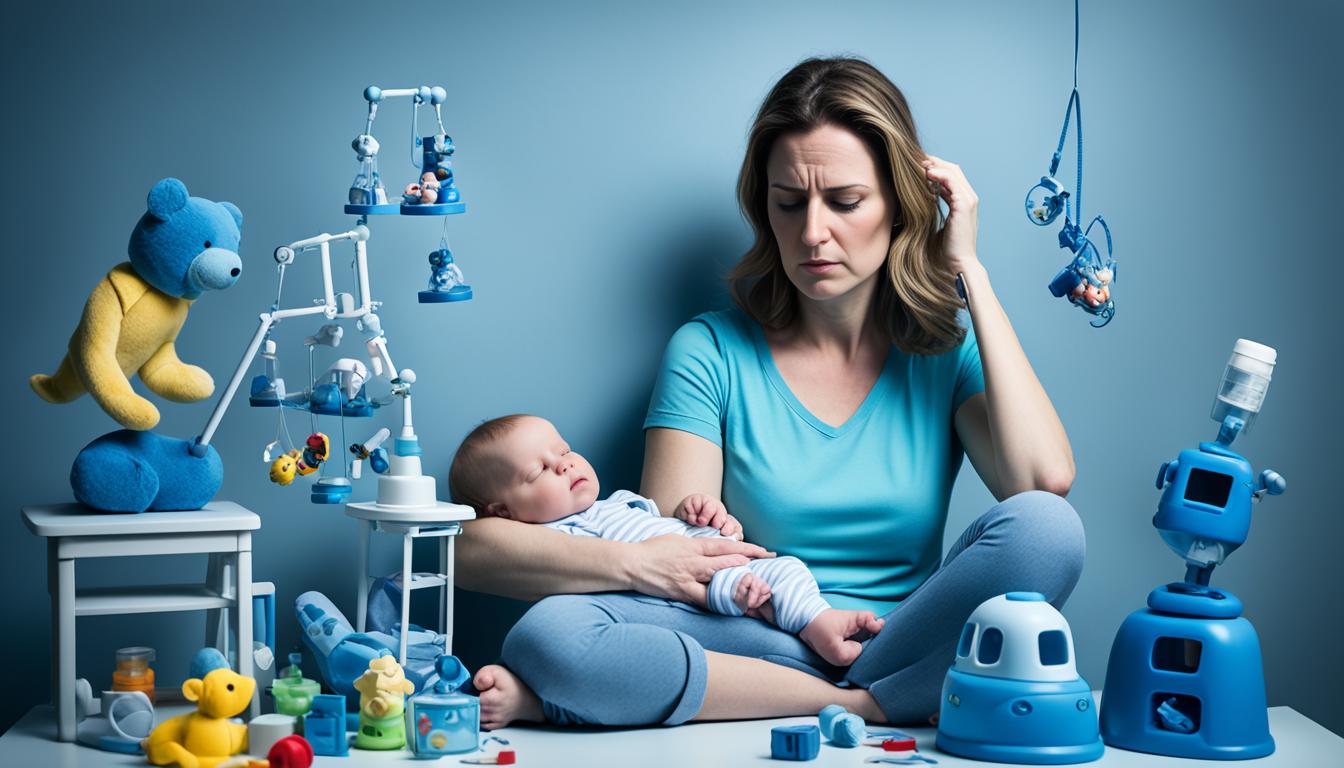Postpartum depression, or postnatal depression, affects about 5% of new moms. It can show up after childbirth and last up to three years. Common signs include feeling anxious, sad, having trouble sleeping, being very tired, and having upsetting thoughts.
Lots of women don’t realize they have postpartum depression. This makes it vital to spread awareness and share available help and resources with those in need.
Doctors suggest checking for postpartum depression up to 6 months after birth. Still, some women show severe signs for longer. Having had a mood disorder before or a history of gestational diabetes can raise the chances of this.
Experts think it might be helpful to screen for postpartum depression longer than the current guidelines recommend. Finding and treating the condition early can mean better help for new moms.
One exciting treatment idea is stem cell therapy. It aims to use stem cells to help fix brain cells. Even though it’s still early, the first few studies show hope. Some moms felt better when they tried this therapy.
By constantly learning more and finding new treatments, we hope to give better care for those facing postpartum depression.
Key Takeaways:
- Postpartum depression affects about 5% of women and can last up to three years after giving birth.
- Symptoms include anxiety, sadness, difficulty sleeping, exhaustion, and disturbing thoughts.
- Many women may not recognize the symptoms and be unaware of available treatments.
- Current guidelines recommend screening for postpartum depression, but extended screening may be necessary.
- Stem cell therapy is an emerging treatment option that shows promise in reducing depressive symptoms.
Understanding Postpartum Depression: Causes and Symptoms
Postpartum depression impacts new mothers, affecting their mental health and well-being. Its exact reasons are not fully known but seem linked to many factors. These include biology, hormones, mental health, and social factors.
Mothers with past mood disorders, like depression, face a higher risk of postpartum depression. Also, lacking support or facing stress, hormonal changes, and sleep problems can make it worse. Each woman’s postpartum depression is different, with causes that can vary.
Common Symptoms of Postpartum Depression
Postpartum depression’s signs and symptoms are different for each person. They may feel sad, anxious, or empty, struggle to connect with their baby, see changes in eating or sleeping, feel irritable or angry, and lose interest in things they used to enjoy. New mothers should look out for these signs and seek help if they notice them.
Treating postpartum depression is possible. Getting help doesn’t show weakness but is a step toward getting better. Many resources exist, like therapy, support groups, and information. They offer help and support for those facing this challenge.
Innovative Treatment for Postpartum Depression: Stem Cell Therapy
Stem cell therapy is a new way to treat postpartum depression. It uses stem cells to help repair brain cells. It’s a promising method for dealing with postpartum depression. Studies show it can reduce symptoms in some women.
This therapy works quickly. Unlike other treatments that need weeks to months, it starts to work in just a few days. This quick relief is very important for mothers who are just starting to bond with their baby.
Stem cell therapy also has a small effect on a mother’s ability to breastfeed. This is a big plus over other medications. It means treatment can be more personalized, considering the mother’s wish to breastfeed. It doesn’t force her to choose between her health and her baby’s.
Though still early in research, stem cell therapy for postpartum depression looks promising. As we learn more, it could become a valuable treatment choice. Development in this area offers hope for better and more available help to new mothers suffering from depression.

